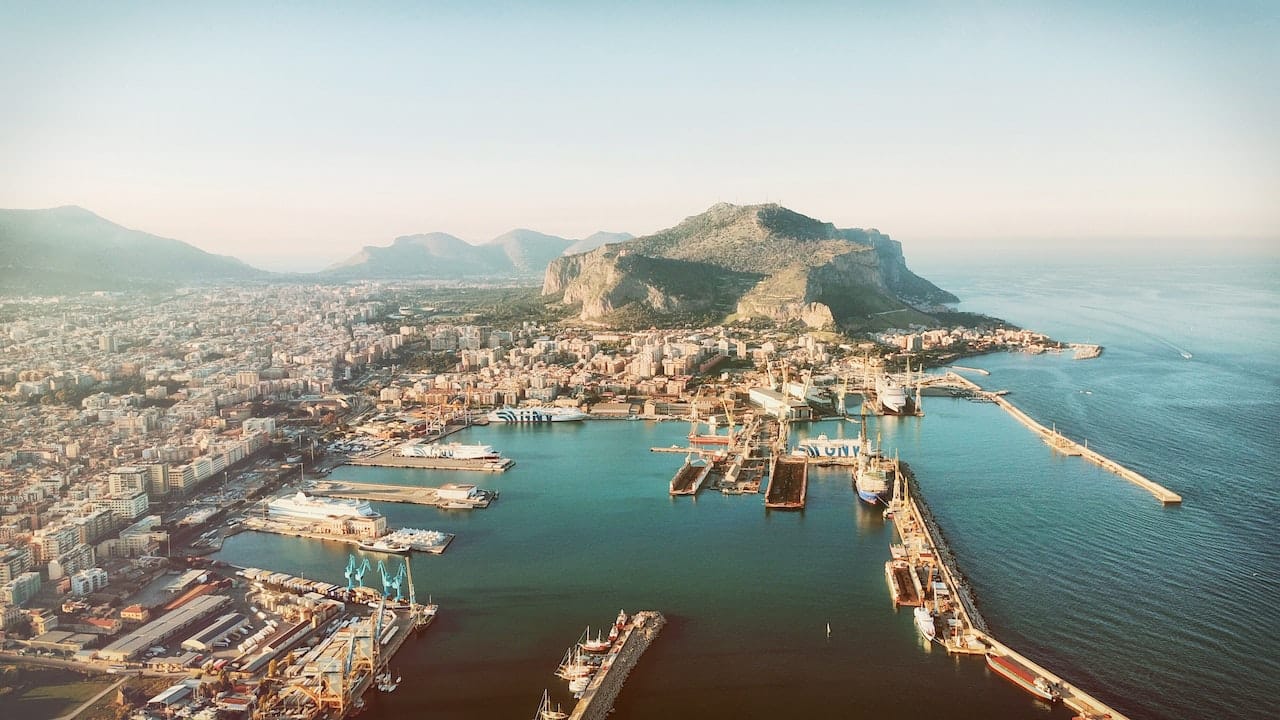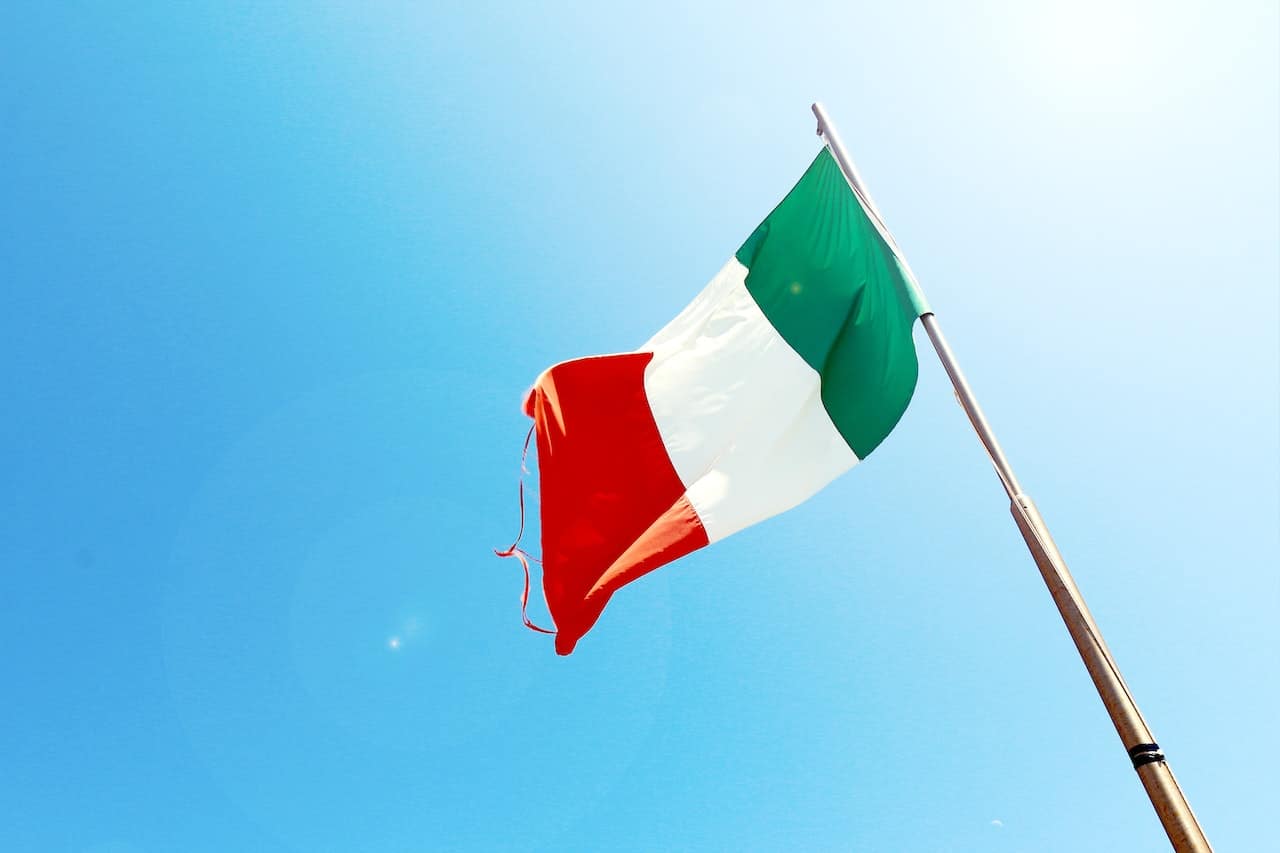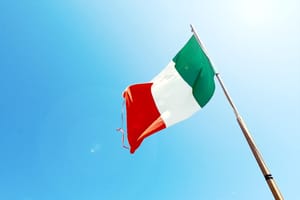Our PESTLE analysis of Italy discusses the political, social, economic, technological, legal, and environmental factors that shape its business environment.
Hey there, curious minds! Have you ever wondered what factors shape the business landscape in Italy?
Well, if you are interested in knowing that, let me tell you, conducting an Italy PESTLE Analysis is your answer!
Italy, known for its stunning architecture, delicious cuisine, and rich history, is also a country with a complex business environment that can make or break your success.
Whether you are considering expanding your business or entering the Italian market, a PEST analysis can help you make informed decisions that lead to success.
So, get ready to enter the exciting world of Italy's business environment and uncover the key factors that will impact your future endeavors!
Italy has a rich and complex history that spans thousands of years. The Italian Peninsula was inhabited by various tribes and peoples, including the Etruscans, Greeks, and Romans, who shaped the culture and history of the region.
The Etruscans, who lived in central Italy between the 8th and 3rd centuries BC, were known for their advanced civilization, including their art, architecture, and metalworking. The Romans eventually conquered them and established the Roman Republic in 509 BC.
The Roman Empire expanded rapidly, eventually encompassing much of North Africa, Europe, and the Middle East. During this time, Italy was the center of the empire, and Rome was its capital.
The Romans significantly contributed to Western culture, including language, law, and engineering.
In the 5th century AD, the Western Roman Empire fell to invading Germanic tribes. Italy was divided into smaller states, including the Lombards, who controlled much of northern Italy.
In the 11th century, the Normans conquered southern Italy, and the Papal States emerged as a powerful force in central Italy. Italy was a center of artistic and intellectual activity during the Renaissance period in the 14th to 17th centuries.
The cities of Florence, Venice, and Rome were home to some of the greatest artists, writers, and thinkers of the time, including Dante Alighieri, Galileo Galilei, Leonardo da Vinci, and Michelangelo.
In the 19th century, Italy was united under the leadership of Giuseppe Garibaldi, and the Kingdom of Italy was established in 1861. Italy was involved in World War I and World War II. It suffered significant damage and loss of life during these conflicts.
After World War II, Italy became a republic and experienced rapid economic growth and modernization. Today, Italy is known for its rich history, culture, art, and cuisine. It continues to be a significant player in European politics and economics.
Now that you know the history of Italy, let's discuss what PESTLE Analysis is before proceeding further and conducting the Italy PESTLE analysis.
PESTLE analysis is a tool that highlights the external factors that impact the operations of any business. In today's PESTLE analysis, we will discuss the political, social, economic, technological, legal, and environmental factors that shape the business environment of Italy.

Political Factors That Affect Italy
When it comes to analyzing the business environment in Italy, political factors play a crucial role. This is because political factors are among the most significant external factors affecting businesses in a country.
These factors include the stability and effectiveness of the government, the country's political structure and policies, and the level of corruption in the public sector.
Italy's political system has experienced some instability in recent years, with frequent changes in government, particularly since the end of World War II.
Italy has had 69 governments since the war, with an average lifespan of fewer than two years. This instability can create uncertainty for businesses operating in Italy, making it difficult to plan for the future.
Moreover, Italy's foreign policy is an essential part of the political factors that impact businesses in Italy. Italy actively participates in international organizations such as the UN, NATO, and EU.
Italy's foreign policy is primarily guided by its commitment to multilateralism, maintaining peace, and promoting economic development.
Regarding trade, Italy has traditionally had strong ties with other European countries, particularly Germany and France.
However, the country is increasingly looking to expand its trade relations beyond Europe, particularly in Asia-Pacific.
Italy is also a member of the G7 and G20, which provides opportunities for dialogue and cooperation on global economic issues.
Italy also plays an active role in international peacekeeping efforts, participating in various UN missions in countries such as Lebanon, Kosovo, and Afghanistan.
The country's military also contributes to NATO's operations, including the Resolute Support Mission in Afghanistan. As a result of these peacekeeping efforts, Italy provides a safe environment for its businesses.

Economic Factors That Affect Italy
Various economic factors impact Italy. The Italian economy is the eighth-largest in the world and the third-largest in the Eurozone, with a GDP of approximately $2.1 trillion in 2021. Italy is also a member of the G7, making it a significant player in the global economy.
One of the main economic factors that affect Italy is its high level of public debt. As of 2022, Italy's public debt-to-GDP ratio stands at approximately 144.7%, the second-highest in the EU after Greece.
This high level of debt can make it challenging for the government to invest in infrastructure and social programs, which can ultimately impact economic growth.
Another economic factor that affects Italy is its high unemployment rate. As of 2021, Italy's unemployment rate stands at approximately 9.83%, which is higher than the EU average.
This can create significant challenges for businesses operating in Italy, as it can limit consumer spending and reduce demand for goods and services.
Regarding trade, Italy has a robust export-oriented economy, with exports accounting for more than 32% of GDP.
The country's main exports include machinery, motor vehicles, pharmaceuticals, and fashion. However, Italy also has a significant trade deficit, importing more goods than it exports.
Italy's EU membership also influences its economic policies. As a member of the Eurozone, Italy is subject to EU regulations and must adhere to fiscal rules.
However, Italy has often struggled to meet these rules, which has led to tensions with other EU members and financial instability.

Social Factors That Affect Italy
Social factors play a critical role in the Italy PESTLE analysis. Italy's rich cultural history and unique social fabric can influence consumer behavior, public opinion, and the overall business environment.
One of the key social factors that affect Italy is its aging population. Italy has one of the oldest populations in Europe, with approximately 23% of its population aged 65 or over.
This can create significant challenges for businesses, particularly those in the healthcare sector, as the demand for healthcare services will likely increase in the coming years.
Another important social factor is the role of family and community in Italian culture.
Family is an essential part of Italian society, and this can impact consumer behavior and business practices.
For example, businesses may need to consider family preferences and values when developing marketing strategies or product offerings.
Religion is also an important social factor in Italy, with 80% of the population identifying as Catholic.
This can influence public opinion on social justice, human rights, and healthcare issues and may impact the regulatory environment for businesses operating in these sectors.
The education system is another significant social factor that affects Italy. The country has a high literacy rate, and the education system is well-regarded globally.
However, significant regional disparities in access to education exist, particularly in southern Italy.

Technological Factors That Affect Italy
Technological factors are a crucial consideration when conducting an Italy PESTLE analysis. As a developed country with a highly skilled workforce, Italy has a well-established technology sector and a strong culture of innovation.
One of the main technological factors that affect Italy is its digital infrastructure. The country has a well-developed telecommunications network and high internet penetration, with 51 million internet users in 2023.
This has enabled businesses to adopt new technologies such as e-commerce, online payment systems, and digital marketing strategies.
Another important technological factor is Italy's research and development (R&D) investment. The country has a strong research sector, with world-class universities and research institutions.
Italy's government also provides funding for R&D activities, which has led to the development of innovative technologies in fields such as biotechnology, renewable energy, and advanced materials.
In addition, Italy has a well-developed manufacturing sector focusing on high-end luxury goods.
The country has a strong tradition of craftsmanship and design, which has led to the development of iconic brands such as Ferrari, Lamborghini, and Armani.
These companies have leveraged technological advancements to improve their production processes and enhance the quality of their products.
However, Italy also faces technological challenges. For example, the country has relatively low levels of investment in technology compared to other developed countries, and there are concerns about the skills gap in the technology sector.
There is also a digital divide in Italy, with rural areas and older generations often lacking access to the latest technologies.

Legal Factors That Affect Italy
Italy has a complex legal system with numerous laws and regulations that can impact business operations.
One of the key legal factors that affect Italy is its labor laws. Italy has some of Europe's most comprehensive and protective labor laws, including a minimum wage and a maximum number of working hours allowed per week.
These regulations can increase business costs in Italy, particularly for small and medium-sized enterprises.
Intellectual property laws are also a critical legal factor in Italy. The country has a robust intellectual property protection system, including patents, trademarks, and copyrights.
This can provide critical legal protections for businesses, particularly those in the technology and creative industries.
In addition, Italy has a solid legal framework for environmental protection. The country has enacted numerous laws and regulations to protect its natural resources and reduce greenhouse gas emissions.
This can impact businesses operating in the manufacturing, energy, and transportation industries.
As a whole, Italy's legal system is slow and bureaucratic, with long court proceedings and complicated administrative procedures.
This can create challenges for businesses, particularly those seeking to resolve disputes or navigate regulatory requirements.

Environmental Factors That Affect Italy
Environmental factors refer to the factors that are linked to the environment. Governments have lately started paying significant attention to environmental factors.
One of the most pressing environmental issues that Italy is facing is climate change. The country is already experiencing the impacts of global warming, including more frequent heatwaves, droughts, and extreme weather events.
These changes can significantly impact businesses related to agriculture, tourism, and other industries that rely on natural resources.
To combat climate change, Italy has implemented numerous policies and initiatives to reduce greenhouse gas emissions and transition to a low-carbon economy.
The country is a signatory to the Paris Agreement and has committed to reducing its emissions by 33% by 2030.
Another important environmental factor in Italy is the management of waste and pollution. The country has a significant problem with illegal dumping and pollution, particularly in urban areas.
This can have negative impacts on public health, as well as on tourism and other industries that rely on a clean and healthy environment.
To address these issues, Italy has implemented numerous policies and regulations to reduce waste and pollution.
For example, the country has introduced a national plan for the circular economy, which aims to reduce waste and increase resource efficiency.

Italy PESTLE Analysis: Final Word
Italy is one of the most prominent countries in Europe in terms of history, culture, and economic growth.
It may seem a paradise for investors. However, before investing in Italy, investors need to look at what external factors in the economy of Italy impact the businesses.
To analyze how different external factors impact businesses in Italy, we conducted the PESTLE analysis of Italy.
This PESTLE analysis not only provided insights into the PESTLE analysis framework but also made you aware of the history of Italy.
If you liked reading this article and want to read similar articles, do look at some of the examples of PESTLE analysis.


